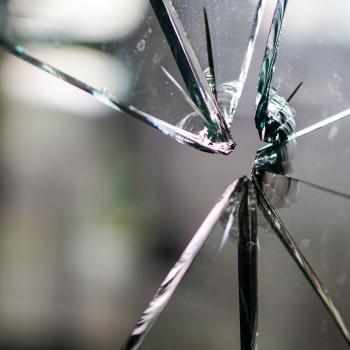Yesterday’s Blessed Is She prompt for the day was father. So I skipped it. Hey, I’m in the business of truth telling over here. I skipped it because I knew there would be something there, I knew God would put something in my heart I’d have to feel. I skipped it yesterday, but came back to it today. Perhaps that’s a mark of my progress.
Of course, the readings smacked me in the face, and then it occurred to me that I’ve never told the story of how I’m forgiving my father.
“The Lord is close to the brokenhearted; and those who are crushed in spirit he saves.”
“If you forgive men their transgressions, your heavenly Father will forgive you. But if you do not forgive men, neither will your Father forgive your transgressions.”
Father and Forgive. Of course.
For me, these two words must always go together. It has to be this way because there is so much that needs to be forgiven; so much that I need the Father in order to forgive. By God’s grace, the work of forgiveness has been largely done, though maybe it will never be complete.
My first memory is of flushing my father’s drugs down the toilet. I was about 3, and he and my mother were fighting. Again. About his drug use. Again. My mother found some stash or other, and sent me to flush them. I did.
By the time I was 5, my parents had separated and reunited several times, and were separated for good. I had been in one major car accident due to his driving while high, and was a confused little girl. I loved my father. I remember him playing games with me and making me grilled cheese sandwiches while my mother was at work. I don’t remember him ever yelling at me or being abusive in any way. Like most addicts, he was two different people, depending on whether he was clean or using. Its hard enough for adults to understand; kids, forget it. Confusion reigns.
Throughout the years after my grandparents took over raising me, I saw my father periodically. I remember the day of my first Holy Communion being ruined when he showed up high for Mass. His mother and father, my Catholic grandparents, who had come so far to share the day with me, were devastated and it was a long time before I saw them again. He would arrive for a visit, stay a few hours, and leave to try and manipulate some local doctors into giving him drugs. Sometimes he came back. More than once, I sat at the window for hours, waiting for my father who would not be back.
Can you see now why I skipped the “father” prompt? How its a mark of progress that I returned to it at all?
By the time I entered high school, he was gone for good. The last time I spoke with him was around my 12th birthday. He was high. I was old enough to tell him that if he couldn’t call me sober, he shouldn’t call me at all. He didn’t. So I spent at least the next ten years believing that I was worthless because he chose drugs over me.
The loss of my mother was traumatic, but it did not cause me shame. I knew, without a doubt, that if my mother could have, she would have done anything in her power to stay alive for me. I knew this, and I know it still.
But the abandonment of my father. A completely different story. The shame runs so deep in this loss that even as I type this more than 15 years later, I’m trying to decide if I should publish it. You see, what if you realize what a terrible child I must have been, for my own father to leave me. You see, what shame can do? How even in hearts mostly healed, it can creep back in like the coward it is.
I struggled mightily to believe that God actually gave a shit about me. How could he? How could a God allow such suffering in the life of a child, and actually care? As a child, theology was lost on me, and for many years after, I resisted any real belief in a caring God.
Then something happened. I was in college and heard a woman speak about forgiveness. Her young daughter had been kidnapped and murdered, and she had forgiven the man who did it. She had leaned in to her Catholic faith and fought the destruction of self caused by hate. She forgave him. Surely, if she could forgive so much and find peace, then I could too?
So I did what she said. I asked God to help me forgive him. Which sounds so little, but in reality, it split everything wide open. I did not want to forgive my father, because I equated forgiveness with permission. If I forgave him, I was condoning what he did, right?
Dear hearts, this is not so. Forgiveness is not permission. We do not forgive people who have wounded us deeply because we get to a point where we are “ok” with their words or actions. I will never be “ok” with the way my father abandoned me. But I have forgiven him, in the sense that he no longer holds power over my heart. I have let go of the anger and resentment. God’s grace and gentle calls to open my clenched fists of rage just a little, let me feel the sweet release of freedom.
I still feel pain when I think of that little girl who believed she was worthless, and that’s why her father left. I want to reach back through the years and hold her close, whisper how beautiful, worthy, and loving she is. How it is his tragedy more than hers. How in time she will see him with eyes of pity for all of the demons who haunted him and all of the beautiful things he sacrificed for his god.
Today, I look at the woman I have become, who grace and love have made me, and I feel sad for him to not know me. I am someone worth knowing. My husband and children are people worth knowing and loving. He has missed all this, and perhaps that is punishment enough.
The moment forgiveness becomes possible is when we can hold in tension these truths: what happened to me is not acceptable, but I am so much more than acceptable . The pain that others inflict upon us does not define our dignity or worthiness of giving and receiving love. We are more than the worst thing that has happened to us.











